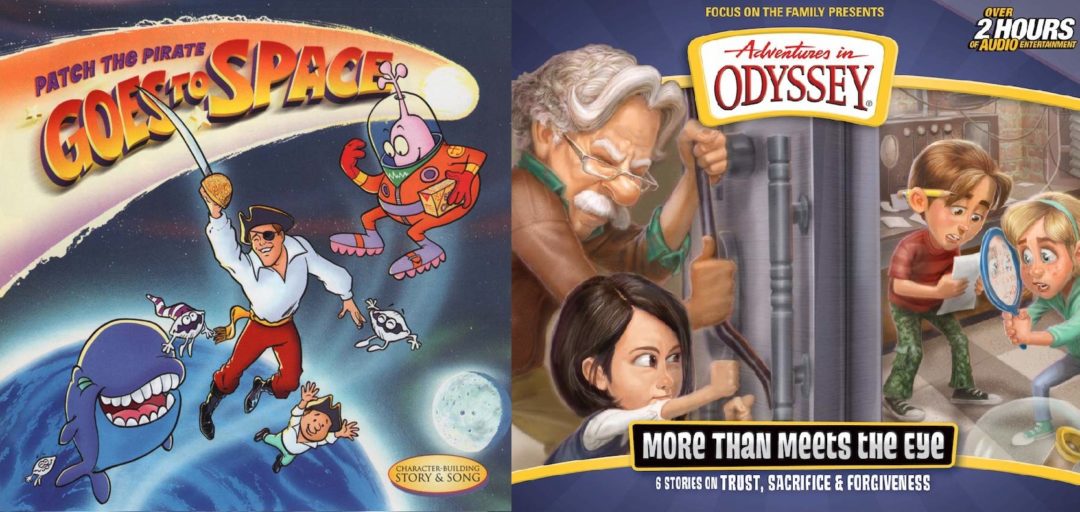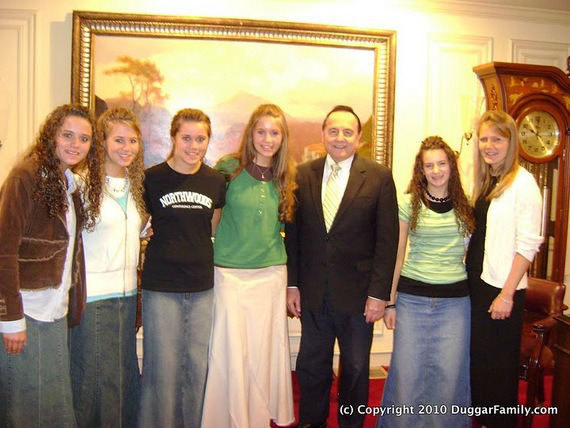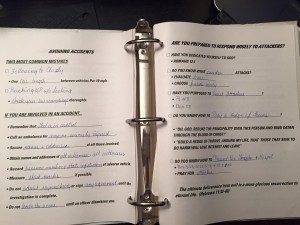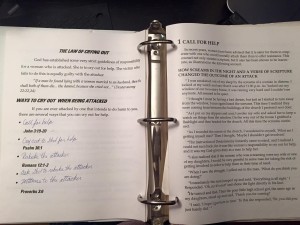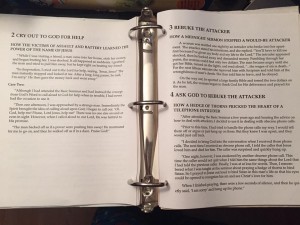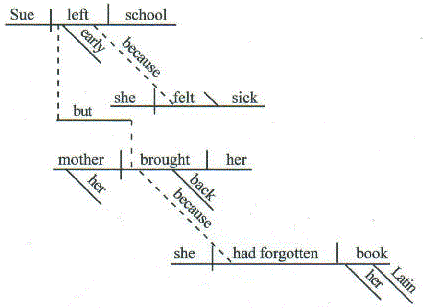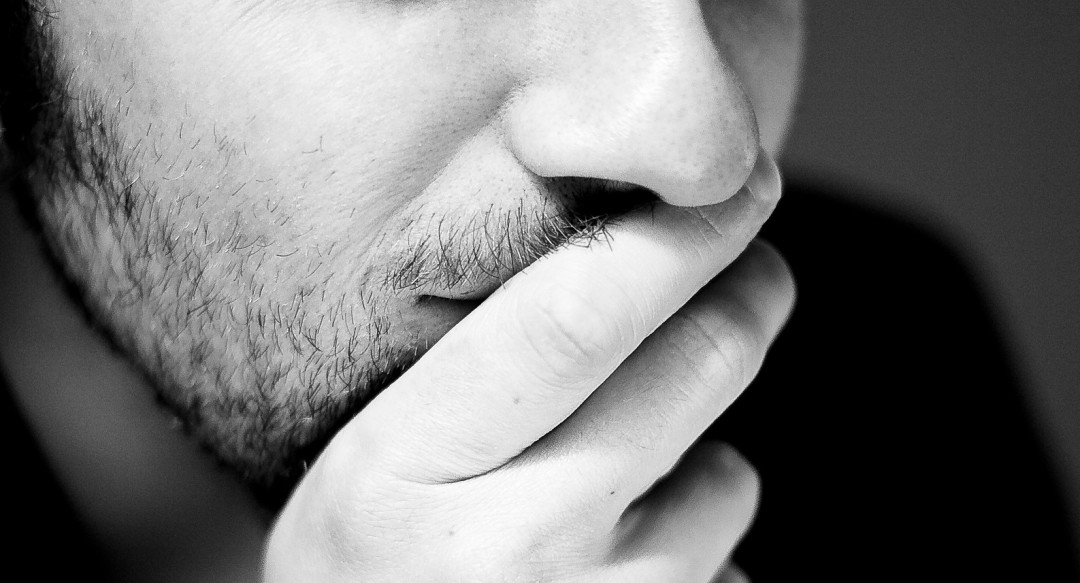This summer, some friends and colleagues of mine were together on a work trip and one evening we were making a slew of Cards against Humanity cards based on our collected backgrounds in Christian fundamentalism and homeschooling. In that reminiscing atmosphere, I brought up one of my absolute favorite gems from my childhood: the opening to Patch the Pirate Goes Down Under. If you’re not familiar, Patch is the radio musical version of Adventures in Odyssey created by the Hamilton family after Ron Hamilton lost an eye to cancer and started wearing an eyepatch.
In the opening to Goes Down Under, we’re introduced to the main villain: a giant squid unimaginatively named “Squash.” When he appears next to their ship, he makes some threats and then– and my hand to goddess I am not making this up— he squirts Sissy the Seagull with his ink which acts as a weird love-potion-slash-aphrodisiac concoction. Sissy, played by Ron’s wife, Shelly, always speaks in a squeaky, girlish voice but it becomes even more exaggerated as she starts exclaiming how “biggimus” and “strongimus” Squash the Squid is. He then — and again, a bunch of Christian fundamentalists wrote this program for Christian fundamentalist children— encapsulates her in a squid ink bubble and takes her oh-so-willing-and-pliable body down to his lair, “The Golden Grotto.” In the opening to an album titled Patch the Pirate Goes Down Under.
Every time I talk about this I laugh so hard I cry.
My friends obviously wanted to hear this for themselves because it’s hilarious and also HOW?!?? so we pulled up a sample on YouTube. And holy smokes it was even worse than I remembered it. The crew are sailing near Australia and see a “glimmering” spot in the water. Patch is briefly absent from the deck, so the child at the helm steers the ship closer. When Patch reemerges, he asks what they’ve done and we hear this dialogue sequence:
Peanut: But what could be wrong with being a little curious?
Patch: Plenty, Peanut. In Romans 16:19, God says he wants us to be wise about good things and innocent about evil things.
Sissy: Getting curious about evil things usually leads to sin.
Patch: That’s right, Sissy Seagull.
Sissy: When you see ole’ Mr. Sin coming around, you better run the other way.
One of the things anyone who’s escaped from fundamentalism will tell you is how questioning and curiosity are absolutely forbidden in Christian fundamentalist environments; how the freedom to investigate and seek answers for yourself, or even gain some measure of personal experience, is eliminated. I know all that, and yet still I was somehow surprised when an album advertised as “character building song and story” explicitly teaches this concept. All that had happened was the crew, voiced by Ron and Shelly’s children, saw something unusual in the water and felt an impulse to investigate. Peanut says “my curiosity is killing me,” to which Sissy responds “I hope it doesn’t kill me, too.”
You heard it here, boys and girls. Curiosity is sinful and might kill you.
***
I grew up on Patch the Pirate, and it’ll never leave me. Just the other day my partner and I were watching The Good Place and during the episode Tahani has the realization that vulnerability and connection can make a lot of headway in forming relationships where shame can’t, and ends up befriending someone she previously considered an enemy. Immediately, I remembered one of the songs from Down Under: “Welcome your foes and turn them into friends, this is the remedy the Bible recommends. Turn back good for evil and never seek revenge. Love your enemies instead and turn them into friends.” It took me a second to remember all the words correctly, but in a flash I could basically hear the men’s choir singing the chorus in my head.
We didn’t listen to Adventures in Odyssey as much, but we did have a tape with “A License to Drive” on it, as well as a few other stories (one about a young woman dancer who’s injured and then grows up to be a pastor’s wife and flutist? Something like that?). By the time my family had loosened up enough where listening to Adventures in Odyssey was permissible (earlier in my childhood it had been far too “liberal”), I’d mostly grown out of this type of children’s programming, but my sister listened to each new episode through an internet streaming app like clockwork so I’m pretty familiar with the stories, characters, and themes. One of the main themes in Adventures is “imagination,” and many of the kids at Whit’s End have an opportunity to explore history, community, and themselves through the “Imagination Station.” At Whit’s End, asking questions is encouraged and celebrated. Following curious impulses and discovering truths and revelations happens all the time on the show. Granted, it’s still a Focus on the Family production and therefore everyone has to form the correct conclusions an arrive at the right answers, but still.
I think that the differences between Patch the Pirate and Adventures in Odyssey exemplify the sometimes-hard-to-parse differences between fundamentalism and evangelicalism. There’s a spectrum there, for sure, but evangelicalism and Christian fundamentalism are actually different, and those differences aren’t just in what Bible version they read or the clothes they wear. My shorthand way of explaining it tends to be “Evangelicals believe, Fundamentalists know.” And while both environments tend to be toxic and can even lean towards the abusive and cult-like, I still think there’s value in recognizing that it’s not just a matter of degree, but of substance, too.
Mr. Whittaker is never going to tell the children at his ice cream parlor that curiosity is sinful. Patch the Pirate will– and has.

